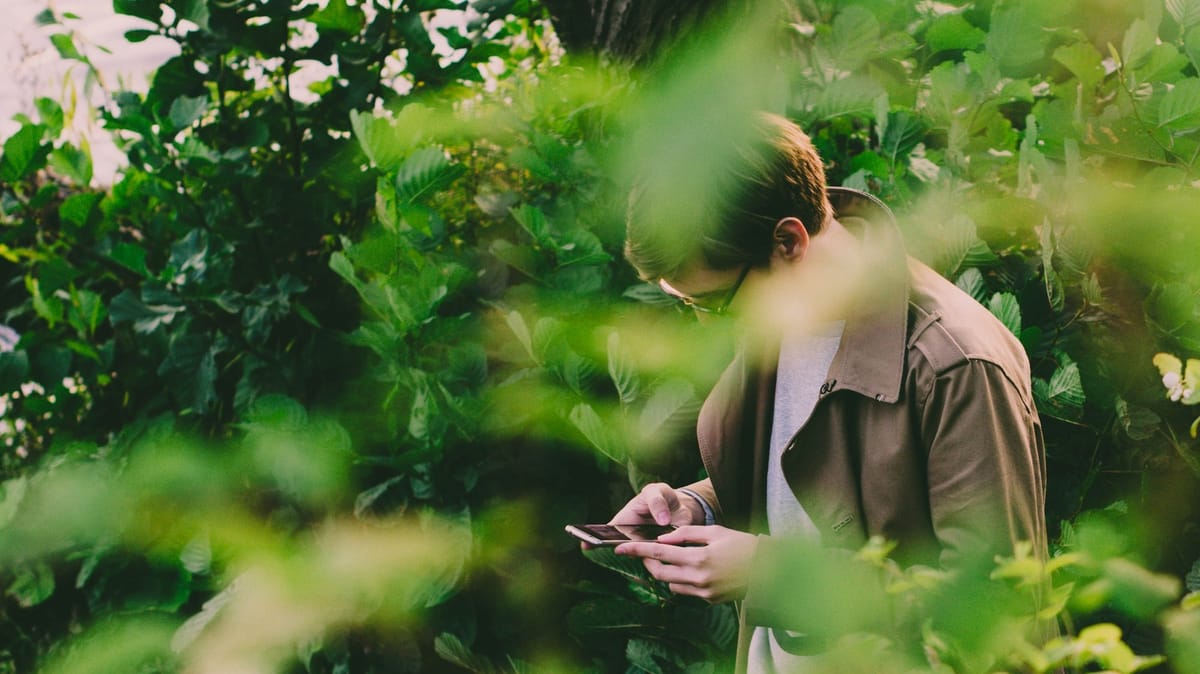The Impact of Mobile Phone Overuse on Our Attention and Safety

Today, we spend a lot of time on our mobile phones — frankly, a lot more than we used to. For this article, we discovered the scientific findings on how our phones affect our ability to stay focused and make well-informed decisions about our time.
We will look at how long screen time hours lead to social anxiety, temporary drops in cognitive abilities, and mental health problems. We will also explore how the time spent in front of our screens has changed since 2019, and the hidden security risks linked to unconscious scrolling in young adults.
This article will be packed with interesting facts and useful references.
Our average screen time nowadays
According to Statista, our screen time (specifically, the time we spend on our phones on nonvoice activities) is growing yearly. While it might differ by country — for example, the average screen time in Japan is almost half of that in the US, in Europe, the US, and the UK the difference is insignificant. In numbers, the average daily screen time in the US in 2024 is expected to be around 5 hours, a 25% increase since 2019.
Mental health concerns
The Pew Research Center conducted an extensive survey to explore how parents and teens perceive the influence of social media on young people's mental health. The survey revealed that more than half of parents of 13-17-year-olds are "somewhat" or "extremely" concerned about their children's mental well-being. Common concerns include potential depression, low self-esteem, and exposure to explicit content. On the other hand, about 36% of surveyed teens regretted spending too much time on social media, while 58% admitted it would be hard or very hard to give it up. Unfortunately, peer validation and the fear of missing out (FOMO) play significant roles. When everyone else is on social media, those who aren't can feel socially uncomfortable and even face concerns from others.
Another research On Social Media Use and Sleep Disturbance among Adolescents showed a positive relationship between excessive screen time and difficulties falling asleep and functioning during the day. The study highlighted the consequences of excessive social media use on depression and sleep disturbances. It found a correlation between excessive social media use and poor sleep quality, daily dysfunction, sleep disorders, and depression. The pressure to be constantly available and the stress and guilt from missing new messages were cited as reasons for depression. Late-night screen exposure interferes with melatonin production, and combined with perceived social pressure, is considered a major factor increasing the risk of depression and insomnia due to excessive social media use.
Cognitive function
The research conducted for the Journal of the Association for Consumer Research, called "The Brain Drain", investigated how the presence of our mobile phones affects our ability to stay focused and solve complex tasks. The hypothesis behind it is that just having a smartphone nearby can occupy cognitive resources, thus reducing the capacity available for other tasks. Experiments conducted with over 500 undergraduates at a university in the United States show that even when smartphones are not in use, their mere presence decreases cognitive performance by approximately 10%, particularly for those highly dependent on their devices.
On performance degradation: participants with their phones on the desk performed significantly worse on tasks requiring cognitive capacity compared to those with their phones in another room. These findings underscore the impact of smartphones on attention and cognitive capacity, highlighting significant implications for consumer decision-making and overall well-being.
Security issues
It has become common for political powers and terrorist groups to spread misleading information or manipulated pictures using AI to radicalize young adults and incite conflict. One of the most notable events was the presidential election campaign in Brazil in 2018. In Brazil, where around two-thirds of voters are active users of WhatsApp, supporters of the right-wing candidate Jair Bolsonaro spread thousands of false photos and videos. These materials falsely accused the left-wing candidate Fernando Haddad of various crimes, including sexual abuse of children, and spread fake claims that Haddad would turn Brazil into a communist state if elected.
Bolsonaro's supporters are believed to have funded this massive disinformation campaign. WhatsApp, a messaging service owned by Facebook, allowed false news, edited photos, and videos to spread unchecked due to its private messaging system. This misinformation significantly affected the elections and heightened tensions between the followers of both candidates. The case of why Facebook's platform made this possible remains a topic of ongoing discussion and investigation.
Is all of our screen time wasteful?
Here comes the small relief 🙂
Speaking from the experience of over 16k users of Taskfulness, around one-third of the time we spend on our phones is time wasted. To put it correctly, most of us know what we are using our devices for 68% of the time. The remaining 32% is being spent unconsciously on side links or doomscrolling.
Our verdict...
We believe that when it comes to social media, mediation is key. They still are useful in keeping us connected, informed, and inspired. The main thing is to use those platforms consciously, in alignment with our true values and goals.
To make it easier, we created Taskfulness and packed it with useful features.
If you haven't tried it yet, you can download it here: Get Taskfulness on App Store
